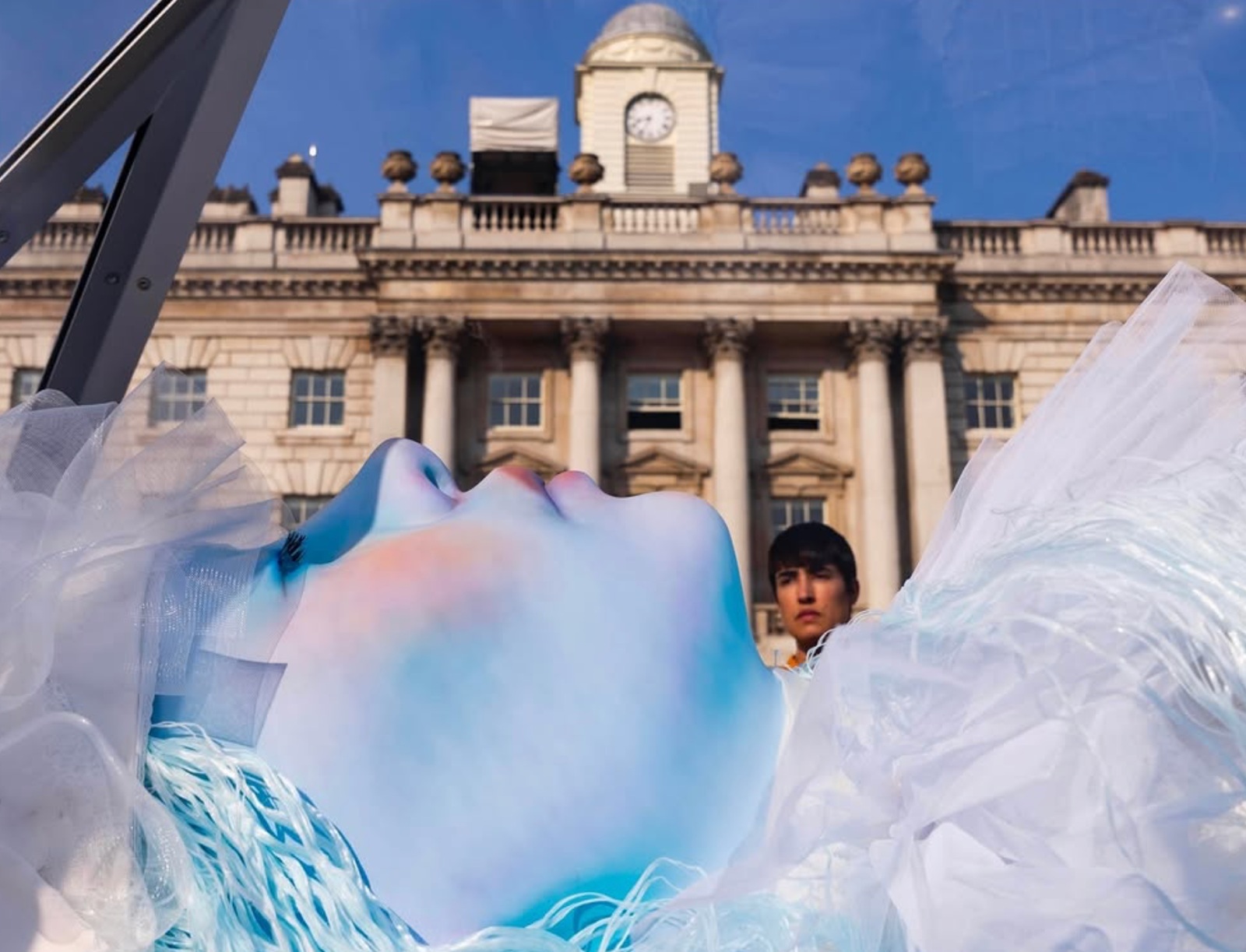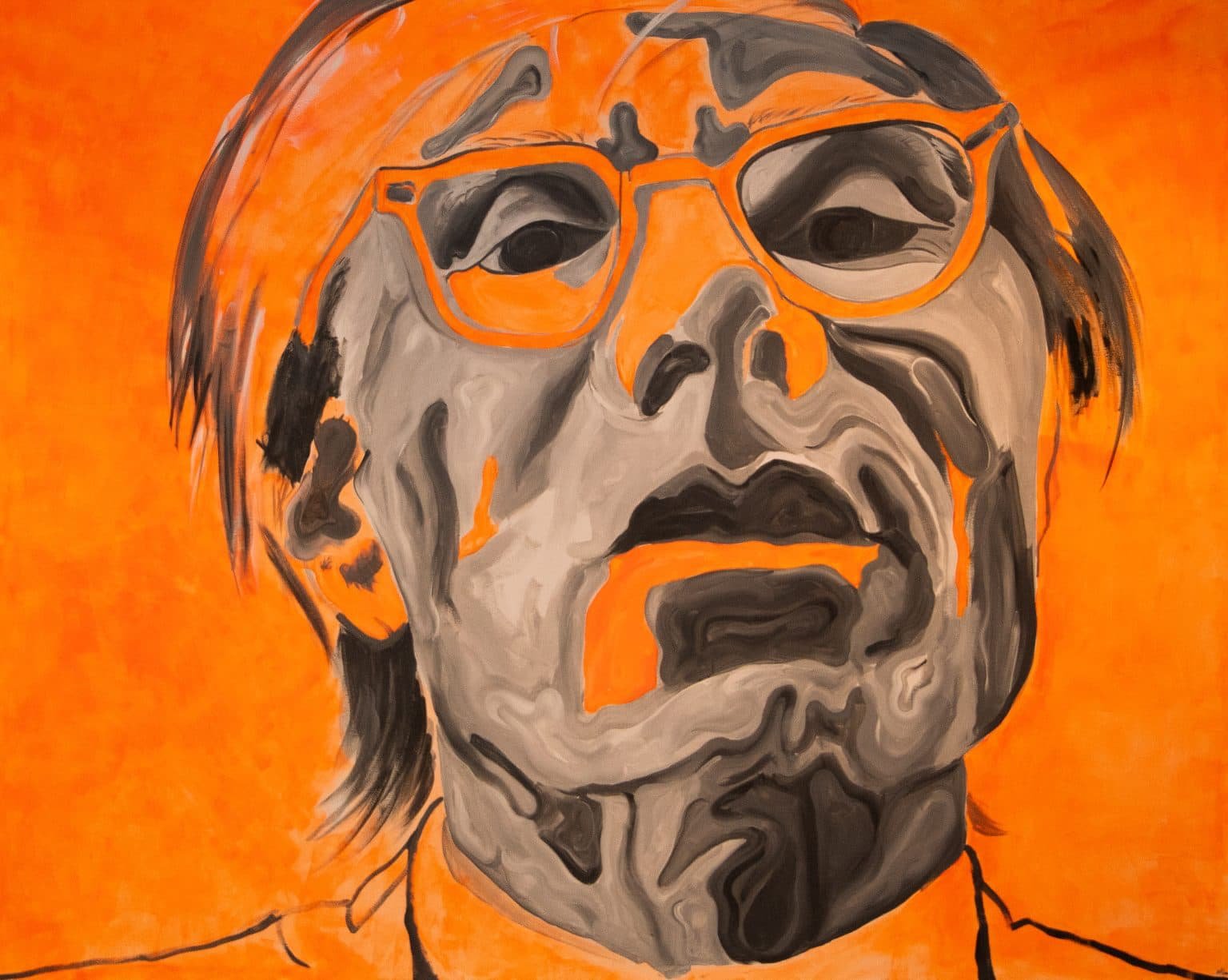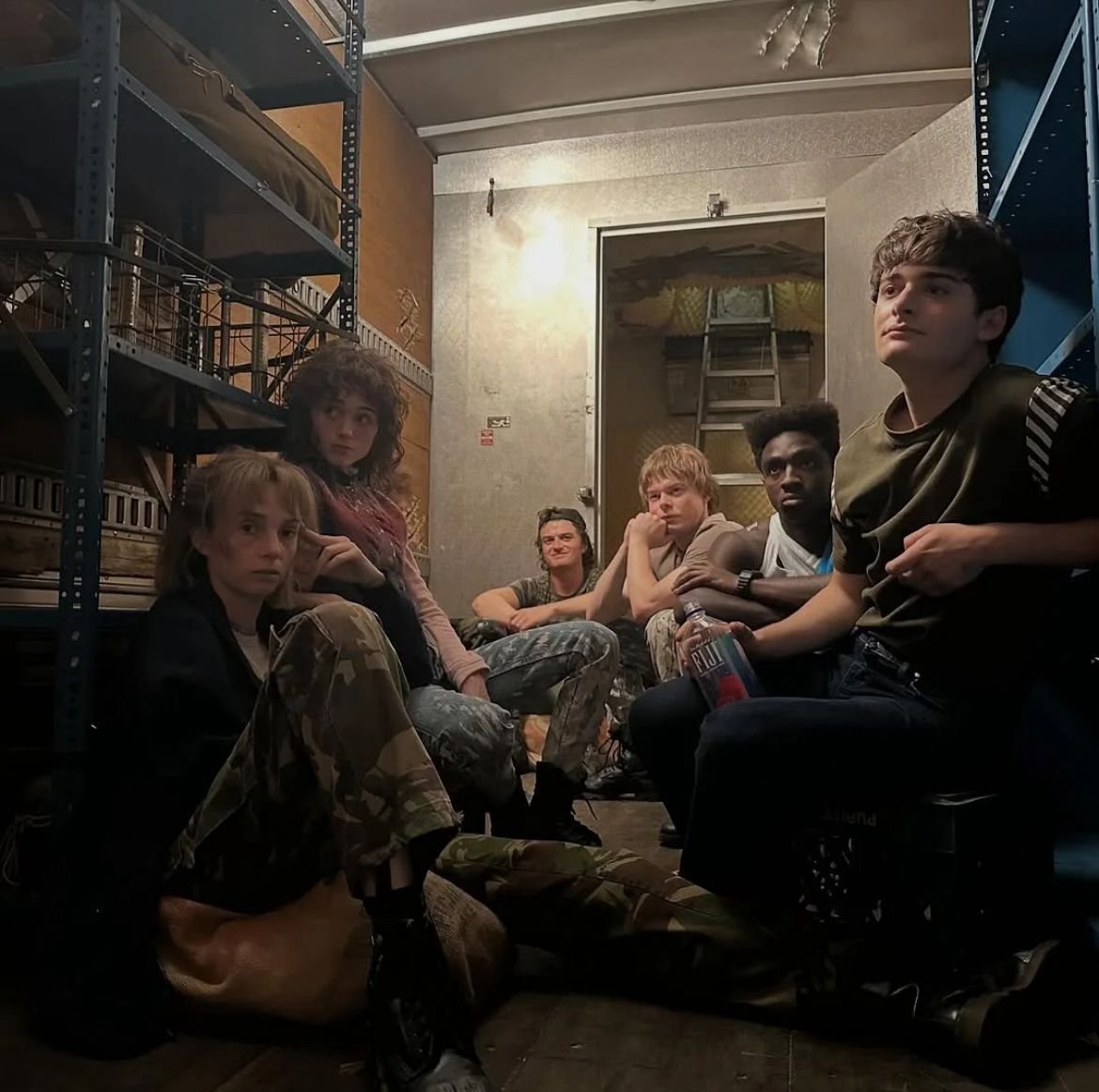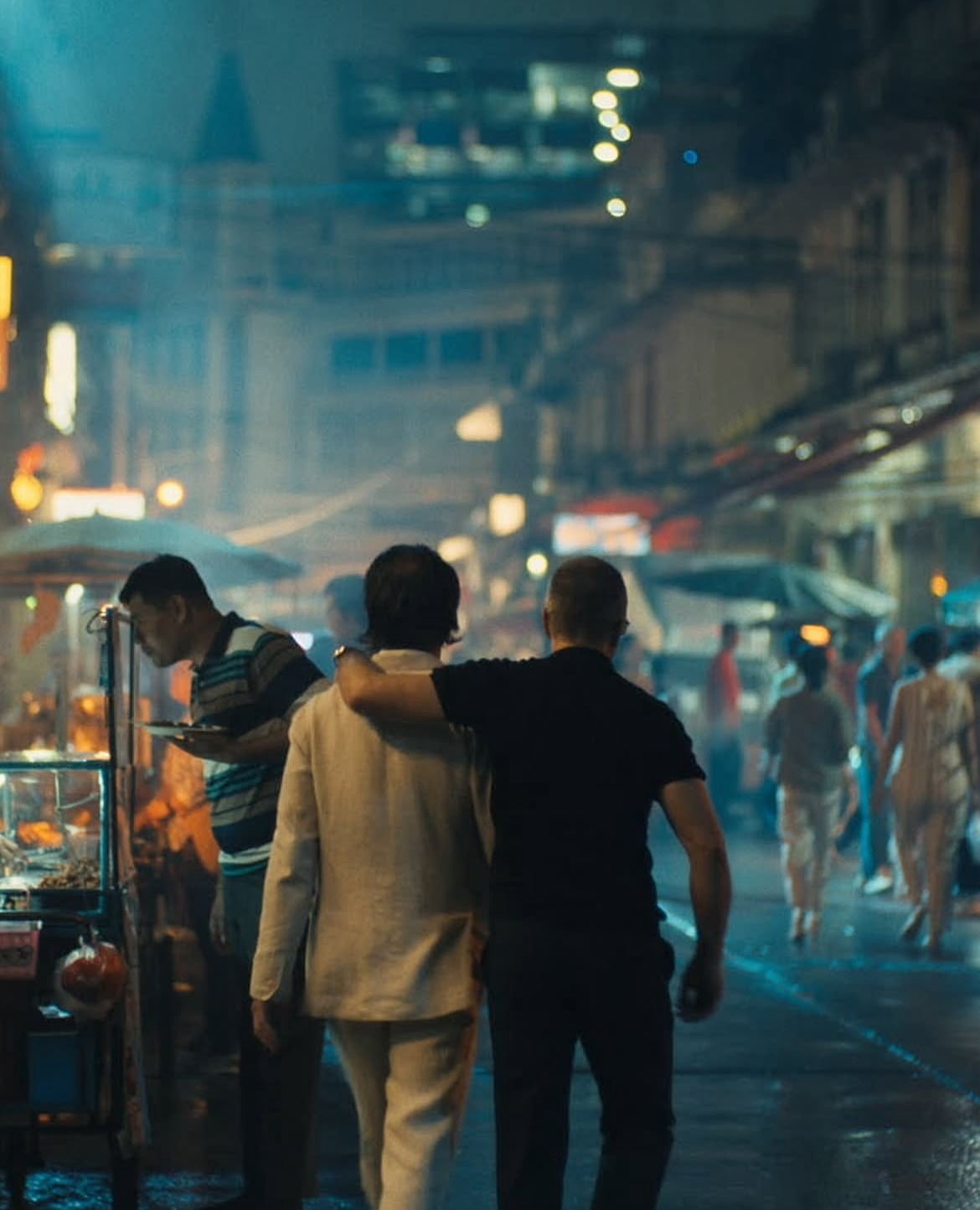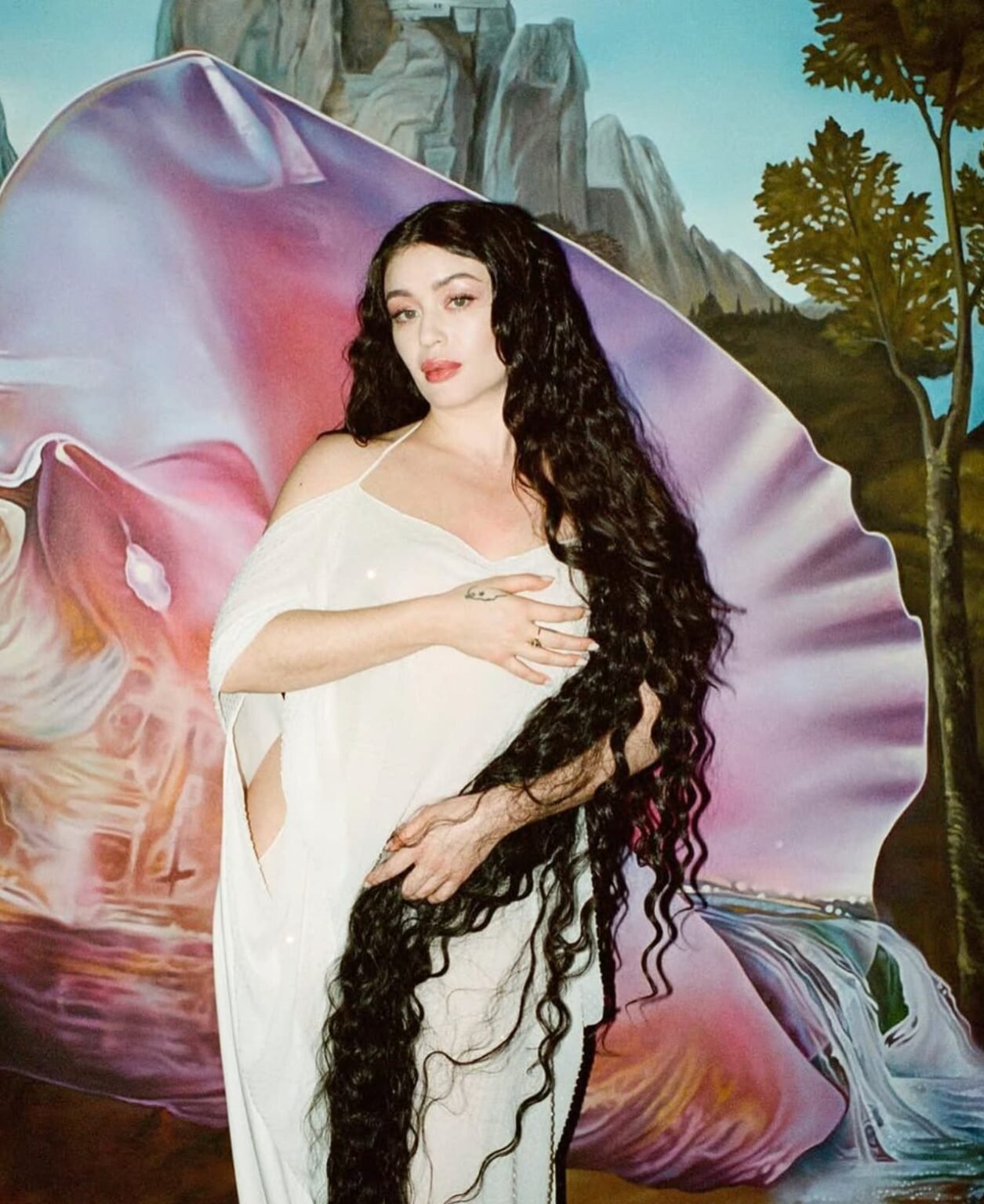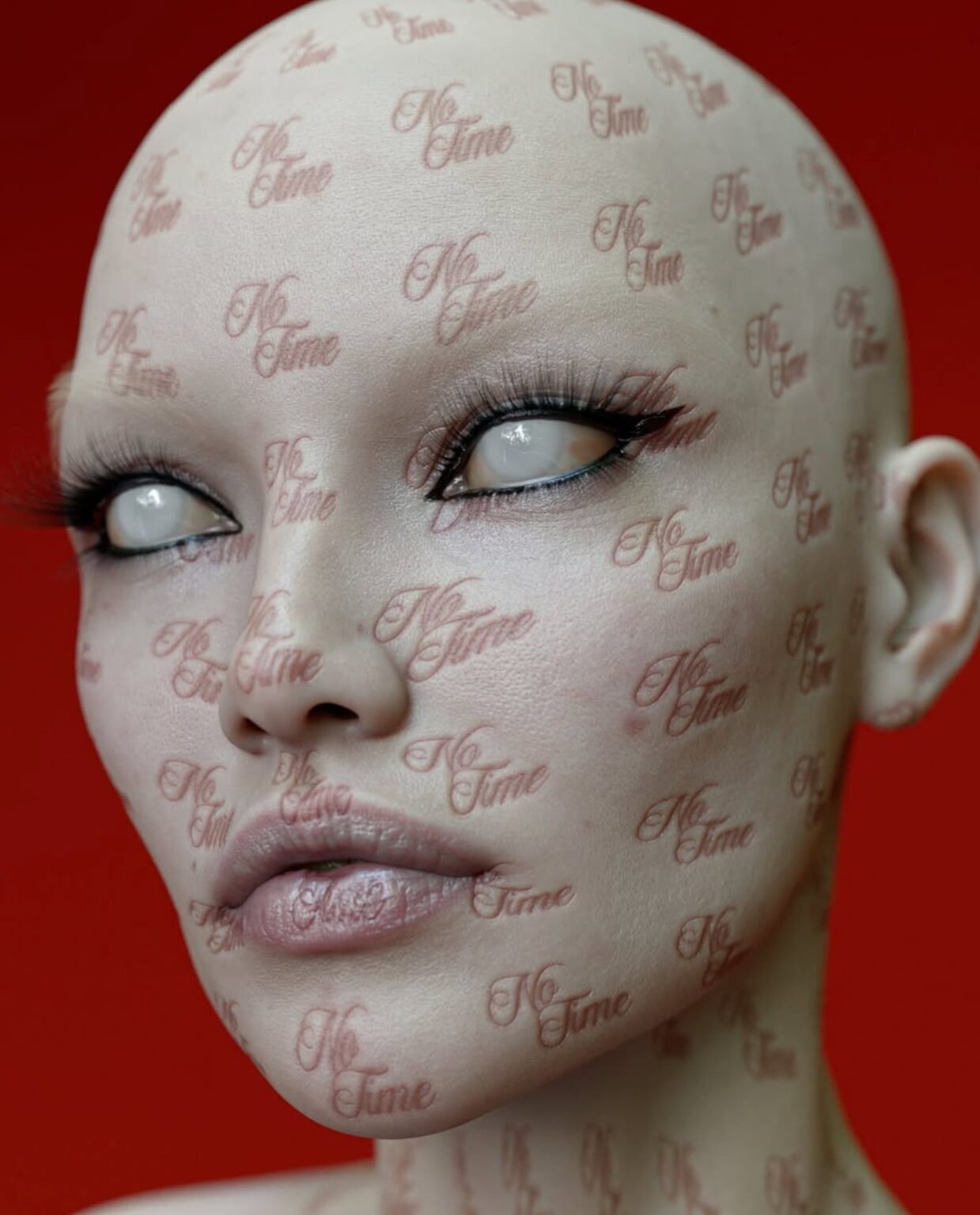Tai Shani doesn’t create exhibitions—she summons worlds. The British-Israeli artist, known for inhabiting the borderlands between performance, sculpture, film, and speculative literature, returns with a proposal that refuses to please and instead aims to enchant. Her new project dives into the thin membrane separating dream from curse, life from transit, body from myth. It’s a sensorial immersion that turns the exhibition space into a liminal territory where grief and fantasy coexist with equal intensity.
At the heart of the show lies a bluish figure resting inside a glass coffin—wrapped in ruffles that seem to hover—serving as a totemic image. Is she sleeping, bewitched, or suspended between worlds? Shani offers no answers; she proposes states of being. The work operates as a visual spell flirting with the gothic, witchcraft, baroque pop, and ritualistic iconography. Candles, smoke, fabrics, sound, and narrative fragments intertwine into a dense atmosphere that forces us to slow down, feel, and dwell inside the mystery.
The personal intersects with the political—not with loud slogans, but with sharp intention. The experience of grief—marked by her mother’s death—runs through the work not as intimate confession, but as collective resonance. Here, mourning becomes a portal: a space where fragility can be transformed into imaginative force. Shani invites us to view pain not as an ending, but as fertile ground for emancipatory fictions—far from sentimentality, closer to emotional alchemy.
A key voice within speculative feminist art, Shani doubles down on her mission to imagine futures that do not replicate the present. There is psychedelia, dark humor, and a bold embrace of sensory excess as resistance to cultural numbness. Her pieces act as silent manifestos dissolving the boundaries between installation and theatrical set, as if each room were a chapter in a book still being written.
Tai Shani doesn’t ask us to observe; she calls us to enter, to feel, and to disobey the limits of the real. Her work pulses with the urgency of someone who knows that, in the face of social and ecological collapse, dreaming is not escape—it is a radical tool for survival.

